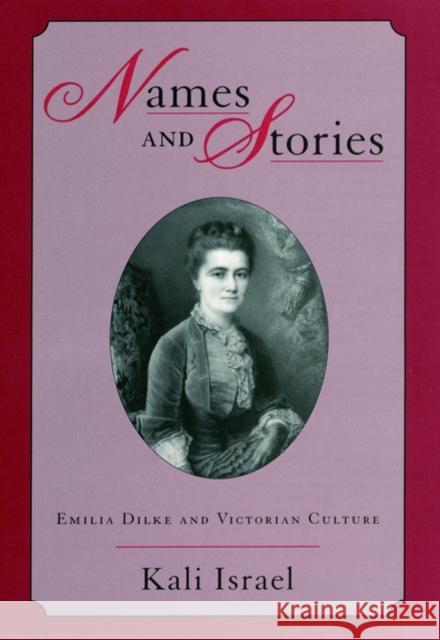Names and Stories: Emilia Dilke and Victorian Culture » książka
Names and Stories: Emilia Dilke and Victorian Culture
ISBN-13: 9780195122756 / Angielski / Twarda / 1998 / 384 str.
"Emilia Dilke" (1840-1904) was christened Emily Francis Strong and known by her middle name throughout her childhood as the daughter of an army officer-cum-bank manager in Iffley, England, near Oxford, and her days as an art student in London. During her first marriage, she was Francis Pattison or Mrs. Mark Pattison, while her published works of art history and criticism were neutrally signed E. F. S. Pattison. Later, in the 1870s, she privately changed her first name to Emilia, a switch made public when she remarried in 1885. By this second nuptial union she became Lady Dilke, the famous intellectual, feminist, art critic, author, and, eventually, the active and popular President of the Women's Trade Union League for nearly twenty years.
A rich work of biography, literary criticism, aesthetic history, and sociocultural inquiry, Names and Stories traces the life of this fascinating and remarkable woman as it was lived under many different appellations and guises. In doing so, the book investigates the full spectrum of nineteenth-century British thought and custom. By studying not only an individual life but the many stories that informed, determined, and challenged that life, author Kali Israel considers Dilke as both subject and object--author and character, player and pawn--in the Victorian world of which she was a part. As they are chronicled, explained, and contextualized in this book, these stories--however they were created, told, or interpreted--move through realms both historical and fictional. Israel's central character experienced not one but two highly visible marriages marked by rampant gossip, high-profile sex scandals, and inconclusive courtroom battles; was considered by some to be the model for the character of Dorothea in Eliot's Middlemarch; and similarly "appeared" in many other novels, plays, and even poems in her own time and up through the mid-twentieth century. Names and Stories is not a conventional "life and times" book, even though it recounts a birth-to-death adventure that is both unique and epochal. Rather, the work utilizes Dilke's myriad narratives as the means to broader critical, historical, and theoretical engagements. Debating the very nature of life-study and biography-writing, Israel employs a wide array of published and primary sources to argue that the "names and stories" of Emilia Dilke can help us understand key conflicts and tensions within Victorian Britain, as well as ongoing cultural arguments. This book thus examines several nineteenth-century pressure-points in this light, among them gender, representation, authority, authorship, knowledge, and political thought. Israel's contemporary and cross-disciplinary study also illuminates such broader themes as the family, the body, narrative, figuration, and historical writing and reading.










